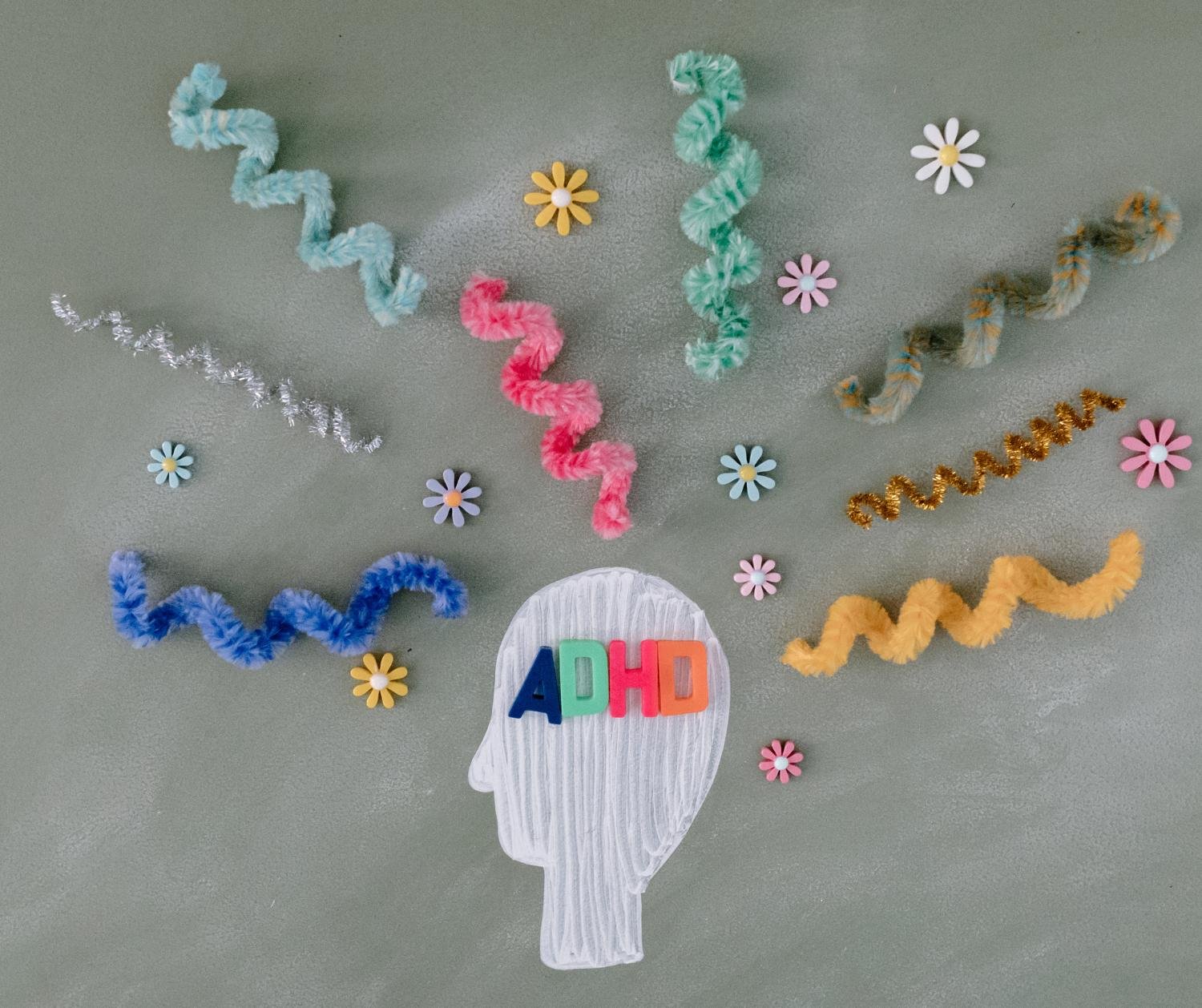ADHD and Public Speaking: Transform Challenges into Strengths
Public speaking can be intimidating for anyone, but for individuals with attention deficit hyperactivity disorder (ADHD), it often brings unique challenges.
ADHD symptoms can make the thought of presenting in front of an audience feel overwhelming. Maintaining focus, impulse control, managing anxiety, and organizing thoughts are a few issues that can impact confidence and performance when speaking in front of large or small groups. However, these same challenges can be transformed into strengths with the right strategies and mindset.
This article explores how people with ADHD can harness their creativity, energy, and unique perspectives to become confident, engaging speakers.
Key Takeaways:
Understanding ADHD and Public Speaking Challenges: ADHD symptoms like inattention, impulsivity, and hyperactivity can make public speaking challenging, but there are several ways that struggles can be transformed into strengths.
Leveraging ADHD Strengths in Public Speaking: People with ADHD can use their natural creativity and energy to enhance their presentations, making them engaging and memorable.
Speech Therapy Support for Public Speaking with ADHD: Speech therapists can offer strategies to enhance focus, manage hyperactivity, and improve public speaking skills for individuals with ADHD.
ADHD and Communication Disorders
Effective Public Speaking with Attention Deficit Hyperactivity Disorder
How a Speech Therapist Can Help with Public Speaking for ADHD
ADHD and Communication Disorders
Attention deficit hyperactivity disorder (ADHD) is a neurodevelopmental disorder that affects both children and adults. Individuals with ADHD often experience difficulties in maintaining focus, organizing thoughts, and controlling impulsive behaviors.
So, how does ADHD affect speech? ADHD-related speech problems can include difficulties with expressive language, such as finding the right words, speaking rapidly, or staying on topic. Speech processing difficulties may also arise, making it challenging to follow conversations or presentations, affecting both professional and social interactions. Additionally, people with ADHD might struggle with body language, such as maintaining eye contact, which can impact how others perceive their engagement or interest in conversations.
Another common issue impacting speech is word recall, where individuals struggle to retrieve specific words quickly, leading to pauses, filler words, or a tendency to go off-topic. Additionally, ADHD can affect the attention span needed to follow conversational cues, resulting in impulsive interruptions or difficulty staying on topic. These challenges can create misunderstandings or make conversations feel disjointed.
ADHD-related speech problems may also include articulation difficulties, challenges with pacing, or a tendency to speak too quickly, especially under stress or excitement. These issues are not necessarily speech disorders themselves but are often tied to the unique ways ADHD affects processing and communication.
Despite these challenges, many people with ADHD possess unique strengths, such as creativity and high energy, which can be harnessed to enhance their public speaking skills.
ADHD and Communication Difficulties
Check out our blog on ADHD and communication difficulties for more information!
Effective Public Speaking with Attention Deficit Hyperactivity Disorder
Public speaking often feels daunting, but with the right strategies, it’s possible to overcome anxiety, stay organized, and deliver a presentation that leaves an impact. Here are some practical techniques to help you prepare effectively, structure your talk, and maintain focus throughout.
Structuring and Organizing Your Speech
Start with a clear outline with a few main points to help you stay focused and avoid getting sidetracked.
Practicing a structured opening, main message, and closing provides a robust framework, making it easier to stick to your plan.
Visual aids or cue cards can also be helpful prompts, giving you quick reminders to keep your presentation on track.
Memory and Focus Techniques
Memory aids are helpful tools for organizing thoughts and maintaining focus. Use mnemonic devices or mind maps to remember key points and pause briefly during your talk to regroup and stay centered.
Practicing mindfulness or grounding techniques before speaking can help reduce anxiety and improve focus, allowing you to feel more present in the moment.
Managing Anxiety and Impulsivity
Public speaking can naturally increase anxiety, but deep breathing techniques can help you stay calm.
Mindful pacing and intentional gestures allow you to channel excess energy effectively, creating a confident, controlled presence. Remember, mistakes happen to everyone; reframe them as part of the learning process to build confidence with each speaking experience.
Preparation Tips for ADHD-Friendly Presentations
Practice is essential, and starting in low-stakes environments, like practicing in front of a friend or family member, can ease the pressure.
Breaking down your preparation into smaller, manageable steps helps prevent overwhelm. Tools like apps, timers, or reminders can help you stay organized and practice within timed intervals.
For added clarity, try scripting out key points or sections while leaving room for some improvisation to keep your talk authentic and adaptable.
With these strategies, you can transform your approach to public speaking by addressing specific ADHD challenges and making the most of your strengths.
Each small step will help you build confidence, focus, and presence, allowing you to deliver an engaging and memorable presentation.
How a Speech Therapist Can Help with Public Speaking for ADHD
Public speaking can be incredibly challenging for individuals with ADHD, but a speech therapist can provide valuable tools and strategies to address these obstacles. Focusing on individualized support, speech therapists can treat ADHD-related communication challenges, helping clients feel more confident and effective when speaking in front of an audience.
Techniques for Managing Impulsivity and Focus
One technique commonly used by speech therapists to help reduce impulsivity and manage attention span is deep breathing. Deep breathing exercises calm the nervous system, assisting speakers to stay grounded and focused during presentations. A speech therapist can guide clients in practicing these techniques before and during a talk to maintain a steady, calm presence.
Speech therapy may also incorporate mindfulness and grounding exercises, which help individuals remain present and focused and reduce their tendency to wander off-topic or lose track of their thoughts.
Tools for Structuring and Organizing Thoughts
A speech therapist can teach practical strategies to streamline communication for individuals struggling to organize their ideas, stay on topic, or recall critical points during a presentation. These might include:
Using mnemonic devices to remember key concepts.
Creating visual mind maps to organize ideas.
Utilizing cue cards for quick reference during speeches.
These techniques ensure that clients can stay focused, deliver a clear message, and feel more in control during their presentations.
Improving Vocal Delivery and Clarity
Speech therapists also work with clients to refine their vocal delivery. They help improve pacing, articulation, and projection, which are speech elements that may prove challenging for individuals with ADHD. Individuals can learn to regulate speech rate, ensuring the message is straightforward for listeners to follow.
By addressing these ADHD-related communication challenges, public speaking coaches provide clients with a toolkit of strategies tailored to their needs.
Frequently Asked Questions About ADHD and Public Speaking
1. Can ADHD affect my ability to give presentations?
ADHD can make presentations challenging by impacting focus, organization, and memory. However, with targeted strategies, such as breaking down key points and practicing techniques to stay on track, individuals with ADHD can improve their communication skills and deliver effective, engaging presentations.
2. How can a communication coach help me improve my communication skills for public speaking?
A communication coach can provide tailored strategies to help you stay organized, manage impulsivity, and refine your delivery. Techniques such as deep breathing, structuring key points, and improving vocal clarity can significantly improve your presentation approach.
3. What if I go off-topic or forget my main points during presentations?
These are common challenges for individuals with ADHD, but they can be addressed. A public speaking coach can teach you to use visual aids, mnemonic devices, or cue cards to focus on your key points, ensuring your presentations are clear and impactful.
How Connected Speech Pathology Can Help
Connected Speech Pathology provides targeted support for individuals with ADHD who face unique challenges in public speaking. Our communication coaches are skilled in helping clients develop techniques to manage focus, control impulsivity, and reduce hyperactivity, all while enhancing communication strengths.
By tailoring strategies to each individual, we address specific areas like organization of thoughts, verbal clarity, and techniques to improve memory recall and reduce anxiety. This personalized approach allows clients to confidently engage with communication strategies that reflect their strengths and abilities.
Our services are delivered entirely through remote sessions, making them accessible and convenient for clients wherever they may be.
This online format allows us to adapt to each client’s unique environment, making it easier to integrate new skills into daily routines, including public speaking opportunities.
We use a range of interactive tools and evidence-based exercises that bring therapy to life and make sessions more effective and engaging, particularly for those with ADHD who benefit from dynamic learning approaches.
Summary
ADHD can present unique challenges in public speaking, but with the right approach, these challenges can also become powerful assets.
By embracing tailored techniques and practicing strategies that align with their natural tendencies, individuals with ADHD can connect more authentically with audiences and deliver impactful and memorable presentations.
About the Author
Allison Geller is a communication coach, speech-language pathologist, and founder of Connected Speech Pathology, an international online practice providing professional communication coaching and speech therapy for children, teens, and adults. With more than two decades of experience, she has worked in medical and educational settings, published research on aphasia, and leads a team of specialists helping clients improve skills in public speaking, vocal presence, accent clarity, articulation, language, fluency, and interpersonal communication.








